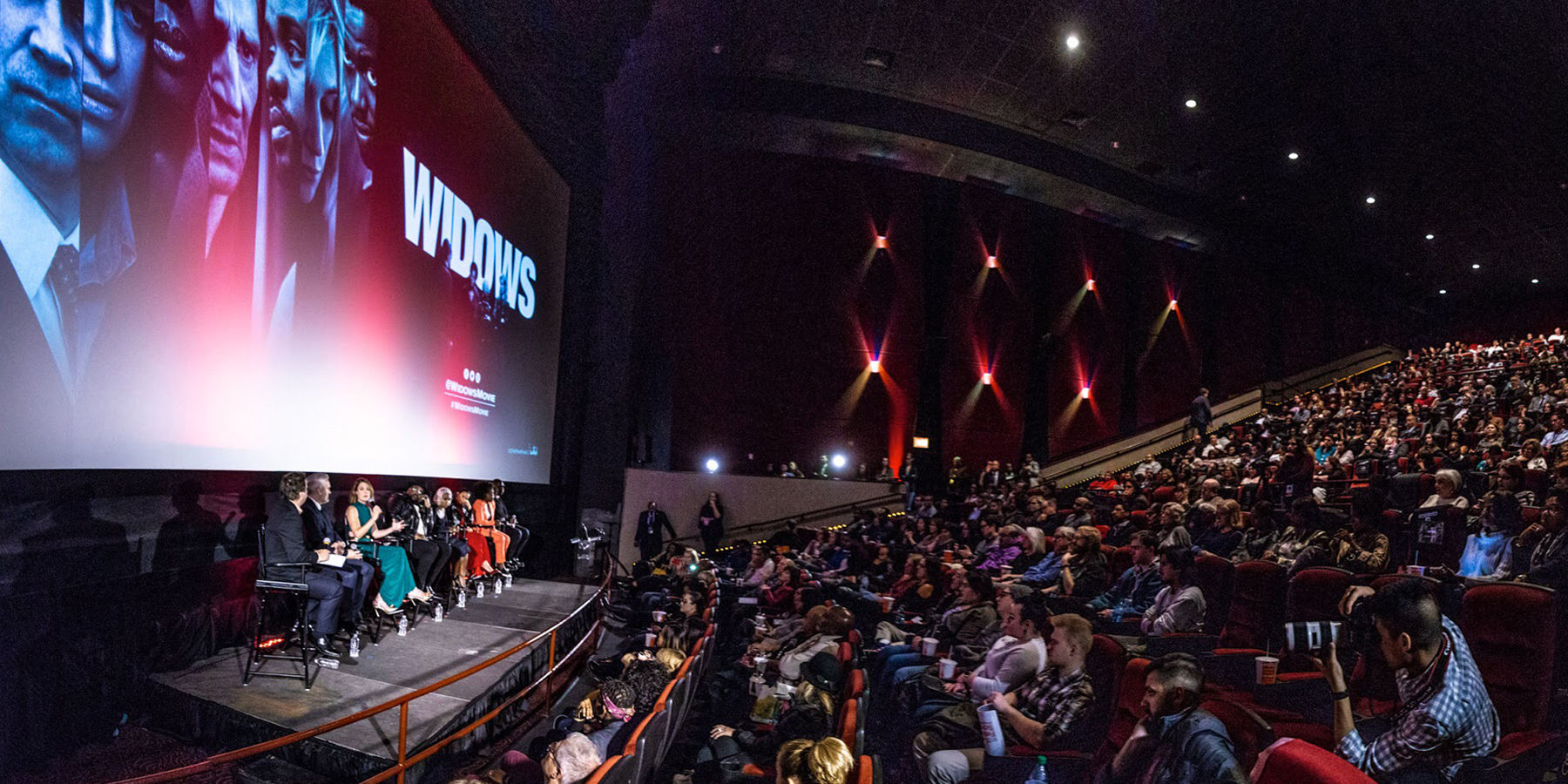How to Understand the Role of Film Festivals in the Movie Industry
Explore the pivotal role of film festivals in the movie industry. Discover how film festivals impact the film world and shape its future.

The Significance of Film Festivals in the Film Industry
Film festivals have become an integral part of the global movie industry, serving as crucial platforms for filmmakers, actors, and film enthusiasts alike. These events offer a unique opportunity for showcasing diverse cinematic works, fostering creative expression, and influencing the direction of the?film industry. In this exploration, we will delve into the multifaceted role of film festivals, shedding light on their impact on the movie industry's dynamics, creativity, distribution, and cultural significance.
?Celebrating Creativity and Diversity
- Showcasing Diverse Voices: Film festivals play a pivotal role in celebrating the diversity of cinematic voices worldwide. They provide a stage for filmmakers from various cultural backgrounds, allowing their stories and perspectives to reach a global audience. This not only enriches the industry but also broadens viewers' horizons.
- Fostering Independent Filmmaking: Independent filmmakers often struggle for recognition in a competitive industry dominated by major studios.?Film festivals?provide a crucial platform for independent and low-budget films to gain exposure, helping them secure distribution deals and find their niche audience.
Promoting Artistic Excellence
- Recognition and Awards: Prestigious film festivals like Cannes, Venice, and Sundance are known for awarding excellence in filmmaking. Winning awards at these festivals can catapult a film, its director, and actors into the international spotlight, leading to increased recognition and career opportunities.
- Critique and Feedback: Festivals provide a space for filmmakers to receive valuable feedback and critique from audiences and industry professionals. This feedback loop contributes to the improvement of?cinematic storytelling?and technical craftsmanship.
Industry Networking and Collaboration
- Networking Opportunities: Film festivals serve as prime networking events, bringing together filmmakers, producers, distributors, and other industry professionals. These connections often lead to collaborations, co-productions, and financing opportunities for future projects.
- Marketplaces: In addition to screenings, many festivals host film markets or industry events where filmmakers can pitch their projects to potential investors, distributors, and production companies. These marketplaces facilitate the financing and distribution of films.
Expanding Global Film Distribution
- Film Sales and Distribution Deals: Film festivals provide a platform for filmmakers to sell their movies to distributors. Successful screenings generate interest from distribution companies, leading to deals for international releases, both in theaters and on streaming platforms.
- Foreign Films and Cross-Cultural Exchange: International film festivals introduce audiences to foreign cinema, fostering cross-cultural understanding. They also enable the distribution of foreign films in new markets, helping diversify the moviegoing experience.
Cultural Significance and Social Impact
- Cultural Exchange and Diplomacy: Film festivals serve as cultural ambassadors, promoting the exchange of ideas, stories, and perspectives across borders. They contribute to diplomacy efforts and foster a sense of global interconnectedness.
- Addressing Societal Issues: Many films screened at festivals address pressing social issues, sparking important conversations and advocating for change. Festivals can be catalysts for social awareness and activism.
Film Festivals in the Digital Age
- Digital Accessibility: The digital age has made film festivals more accessible than ever. Online screenings and virtual events have enabled a broader audience to participate, transcending geographical barriers.
- Challenges and Opportunities: While digital platforms provide opportunities, they also pose challenges such as piracy and competition. Festivals must adapt to these changes to remain relevant and effective.
Challenges and Evolution
- Sustainability: As film festivals grow in scale and popularity, they face challenges related to sustainability and environmental impact. Festivals are increasingly exploring eco-friendly practices, such as reducing waste and embracing renewable energy sources.
- Inclusivity and Diversity: While film festivals have made strides in showcasing diverse voices, there is ongoing debate about inclusivity and representation within the festivals themselves. Many argue that festivals should reflect the diversity of the global film industry in their programming and organizational structure.
The Future of Film Festivals
- Hybrid Events: The COVID-19 pandemic accelerated the adoption of digital elements in film festivals. Hybrid events, combining in-person screenings with online components, are likely to become more common, allowing festivals to reach broader audiences.
- Virtual Reality (VR) and Augmented Reality (AR): Emerging technologies like VR and AR are being integrated into film festival experiences, offering immersive storytelling and interactive exhibitions. This innovation opens up new possibilities for filmmakers to push the boundaries of?cinematic art.
- Diversity and Inclusivity Initiatives: Film festivals are increasingly focusing on diversity and inclusivity initiatives, not only in film selection but also in their organizational structures. This trend is expected to continue, with festivals becoming more representative of the global filmmaking community.
- Sustainability and Eco-Friendly Practices: Film festivals will continue to prioritize sustainability, implementing greener practices to reduce their environmental footprint. This aligns with growing global concerns about climate change and sustainability.
- Global Expansion: Film festivals are no longer confined to major cities. They are spreading to smaller towns and regions, democratizing access to cinema and creating platforms for emerging talent.
?The Role of Film Festivals in Education
- Film Education and Workshops: Film festivals often complement their screenings with educational programs and workshops. These initiatives provide aspiring filmmakers and students with valuable insights, hands-on experience, and mentorship from industry professionals. Film festivals, therefore, serve as crucial hubs for the development of emerging talent.
- Film Preservation and Restoration: Many festivals take pride in their role as champions of film preservation and restoration. They showcase classic and historic films, some of which might have been lost to time if not for the efforts of dedicated preservationists. By doing so, festivals contribute to the preservation of cinematic heritage.
?Building Film Communities
- Cinematic Communities: Film festivals create communities of film enthusiasts, fostering a sense of belonging among those who share a passion for cinema. These communities often extend beyond the festival's duration, with dedicated film clubs and discussion groups forming around festival experiences.
- Cultural Exchange and Understanding: Film festivals play a significant role in promoting cross-cultural understanding. They bring together filmmakers, artists, and audiences from diverse backgrounds, encouraging dialogue and appreciation for different cultures and perspectives.
Challenges and Adaptations in the Digital Age
- Digital Competition: The proliferation of online streaming platforms has increased competition for viewers' attention. Film festivals must find innovative ways to attract audiences and differentiate themselves in the digital landscape.
- Online Piracy: The availability of festival films online has also led to concerns about piracy. Festivals are working on digital rights management and security measures to protect filmmakers' work.
In conclusion, film festivals are much more than glamorous red carpets and celebrity sightings; they are the lifeblood of the movie industry. These events celebrate creativity, promote artistic excellence, facilitate industry networking, expand global distribution, and hold cultural significance. As the film industry continues to evolve, film festivals will undoubtedly play a vital role in shaping its future, ensuring a rich and diverse cinematic landscape for audiences worldwide.
What's Your Reaction?












